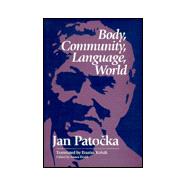Patocka, like few others before or since, combined what was best in Husserl and Heidegger, but at the same time found for himself a distinct, original philosophical voice. Both his originality and his synthesis of the two dominant strands of classical phenomenology are evident here, as Patocka pursues the threefold theme of subject body, human community, and the phenomenological understanding of "world." This volume is an excellent introduction to philosophy in the phenomenological tradition.








